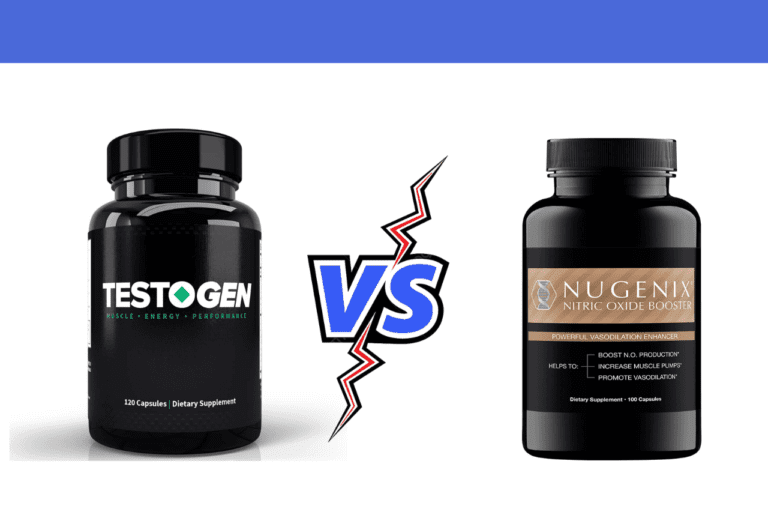Have you ever wondered what the reason for your premature ejaculation could be? Well, you might be shocked to learn that a lack of vitamin D in your diet might be playing a role.
It’s true, the vitamin often referred to as the “sunshine vitamin” might not only be beneficial for our bones but also our sexual performance. But before you start supplementing your diet with vitamin D, let’s explore the connection between low vitamin D levels and premature ejaculation further.


Does vitamin D deficiency cause premature ejaculation?
Studies have suggested a possible link between premature ejaculation and low vitamin D levels, though the exact relationship is still being explored. Vitamin D plays a crucial role in maintaining good health and well-being, including mental health, and may even impact sexual function.
Firstly, It’s important to understand the crucial role that vitamin D plays in our overall health and well-being. This vital nutrient supports the immune system, strengthens bones, and impacts our mental health. And, some studies have shown that it can even impact our sexual function.
Recently, there has been a lot of attention given to premature ejaculation and some studies have uncovered a link between PE and low levels of vitamin D. One such study, published by the International Society for Sexual Medicine, found that men diagnosed with acquired premature ejaculation had lower levels of vitamin D compared to men without the condition. This study also suggested that taking vitamin D supplements might help improve symptoms related to PE.
It’s worth mentioning that these studies only establish a correlation between low vitamin D levels and PE and do not prove that low vitamin D causes PE. However, the research does indicate that there may be a link between the two.
The role of vitamin D in sexual function
Vitamin D plays a crucial role in many bodily functions, including sexual function.
Testosterone levels
One of the ways it affects sexual function is through its impact on testosterone levels. Testosterone is a key hormone that plays a role in sexual desire and performance. Low levels of vitamin D have been linked to low levels of testosterone, which can lead to decreased sexual desire and difficulty with maintaining an erection. This can also lead to other sexual dysfunctions like erectile dysfunction. Maintaining adequate levels of testosterone is key for sexual performance.
Nervous system
Vitamin D also plays a role in the nervous system, and it has been shown to have an impact on sexual function. The nervous system plays a crucial role in sexual function by controlling the muscles and nerves that are involved in the sexual response. Low levels of vitamin D have been linked to poor nerve function, which can lead to difficulty with ejaculation control.
Additionally, research has suggested that vitamin D deficiency may lead to chronic prostatitis, a condition that can cause premature ejaculation.
The connection between low vitamin D levels and PE is still being researched, but it is apparent that vitamin D plays a vital role in sexual function. If you are experiencing PE, it is recommended to have your vitamin D levels assessed and talk to your healthcare provider about the potential impact of a deficiency on your condition. Improving your vitamin D levels can improve overall sexual function and provide other health benefits.
Symptoms of vitamin D deficiency and PE
Symptoms of vitamin D deficiency can be subtle, such as feeling tired, weak, or experiencing bone pain. PE is characterized by ejaculating before either you or your partner is ready during sexual activity.
Diagnosis
Diagnosis of vitamin D deficiency can be done through a simple blood test. Your doctor might also perform a physical check-up and ask you about your medical history to determine if any other factors are causing the deficiency.
When it comes to premature ejaculation, your doctor will ask you about your sexual experiences and symptoms. They may also give you a questionnaire made specifically for diagnosing premature ejaculation. A physical examination can help eliminate the possibility of any other health conditions contributing to the issue.
Causes of low vitamin D levels
Here are a few of the most common causes of a lack of low serum vitamin D levels
Sunlight exposure
The greatest risk factor for Vitamin D deficiency is a lack of sunlight exposure. Vitamin D is produced in your skin when it’s exposed to UVB rays from the sun. If you reside in a location with low sun intensity or spend most of your time indoors, your body may not produce sufficient Vitamin D. It’s crucial to be aware of your sun exposure to maintain optimal levels of this vital nutrient.
Poor diet
Don’t skip on the egg yolks and fatty fish! These are some of the few natural sources of vitamin D. If your diet lacks these foods, it could be a factor in your low vitamin D levels. Vitamin D is also added to some common foods like milk and cereal, so be mindful of what you eat to ensure you’re getting enough of this crucial nutrient.
Medications
Certain medications can also affect the body’s ability to absorb or metabolize vitamin D. For example, some anticonvulsant drugs, glucocorticoids, and antifungal medications can decrease vitamin D levels.
Medical conditions
Certain medicines can also impact the body’s ability to take in or process Vitamin D. For instance, anticonvulsant drugs, glucocorticoids, and antifungal medications can lower Vitamin D levels.
The root cause of low vitamin D levels can stem from a mix of lifestyle, diet, and medical factors. That’s why it’s crucial to speak with a healthcare provider to figure out what’s causing the deficiency and plan the right treatment.


Treatment options
Treatment options for low vitamin D levels and premature ejaculation will vary depending on the underlying cause of the deficiency.
Diet and lifestyle changes
A balanced diet with foods high in vitamin D like fatty fish, eggs, and fortified foods can help keep your vitamin D levels up. And, if you want to improve your health and sexual function, consider quitting smoking, cutting back on alcohol, and working on weight loss. These simple steps can make a big impact on your overall well-being.
Medications
Sometimes, health conditions like celiac or Crohn’s can lead to low levels of vitamin D and premature ejaculation. That’s why it’s crucial to address the underlying problem in order to improve both vitamin D levels and sexual performance. In some instances, your doctor might suggest taking drugs such as antidepressants or PDE5 inhibitors.
There are also a number of different medications prescribed for premature ejaculation. These mainly come in the form of SSRIs which can help balance out the serotonin in your body to help delay ejaculation.
Supplements
If you’ve been diagnosed with low Vitamin D levels, your doctor may recommend taking a supplement. Supplements are available in various forms such as pills, capsules, or liquids, and can be taken daily or weekly, based on your individual needs. It’s essential to have a discussion with your doctor about the appropriate dose for you, as taking an excessive amount of Vitamin D can be harmful.
There are also supplements that help enhance sexual performance for premature ejaculation specifically available. Many male-enhancing supplements for premature ejaculation contain natural ingredients that are believed to help with this condition. For example, L-arginine, an amino acid that increases blood flow to the penis, can improve erections and reduce premature ejaculation.
Sunlight exposure
Getting some sun can help increase your vitamin D levels, but it’s important to protect your skin. UVB rays from the sun can trigger your body to produce vitamin D, but too much sun exposure can increase your risk of skin cancer. So, if you’re spending time outside, be sure to use sunscreen and limit your time in the sun.


Conclusion
Research has shown that there is a potential connection between vitamin D deficiency and premature ejaculation. Low serum vitamin D levels have been found to be a novel potential risk factor for premature ejaculation. Studies have also shown a statistically significant difference in vitamin D levels between men with premature ejaculation and men without.
Proper diagnosis and treatment are crucial for managing premature ejaculation. A premature ejaculation diagnostic tool such as the PEDT can be used to detect patients suffering from acquired premature ejaculation. It is also important to see a healthcare provider to rule out any underlying hormonal disorders or other potential risk factors that may be affecting ejaculatory function.












